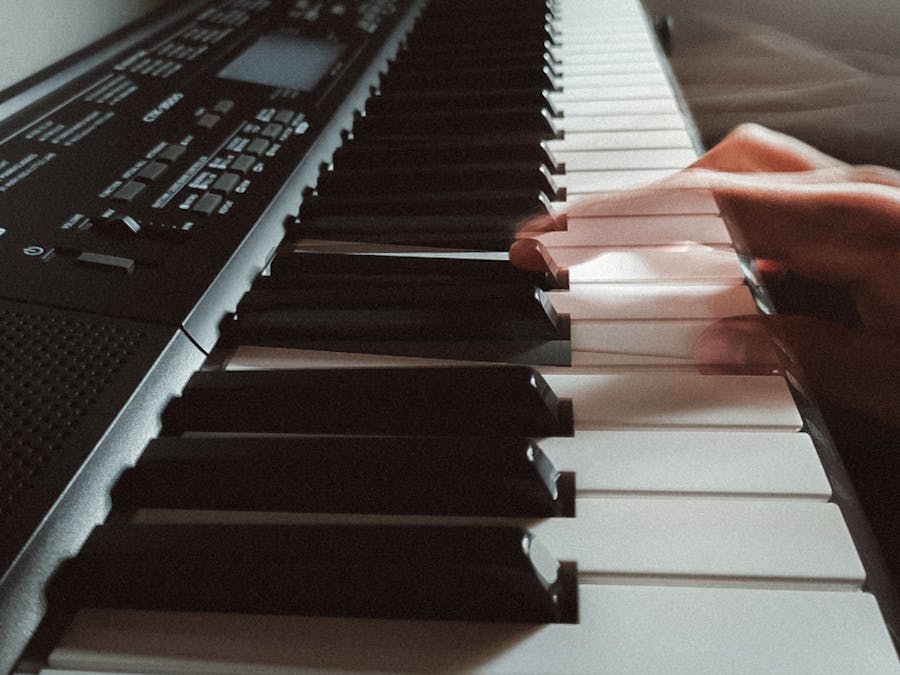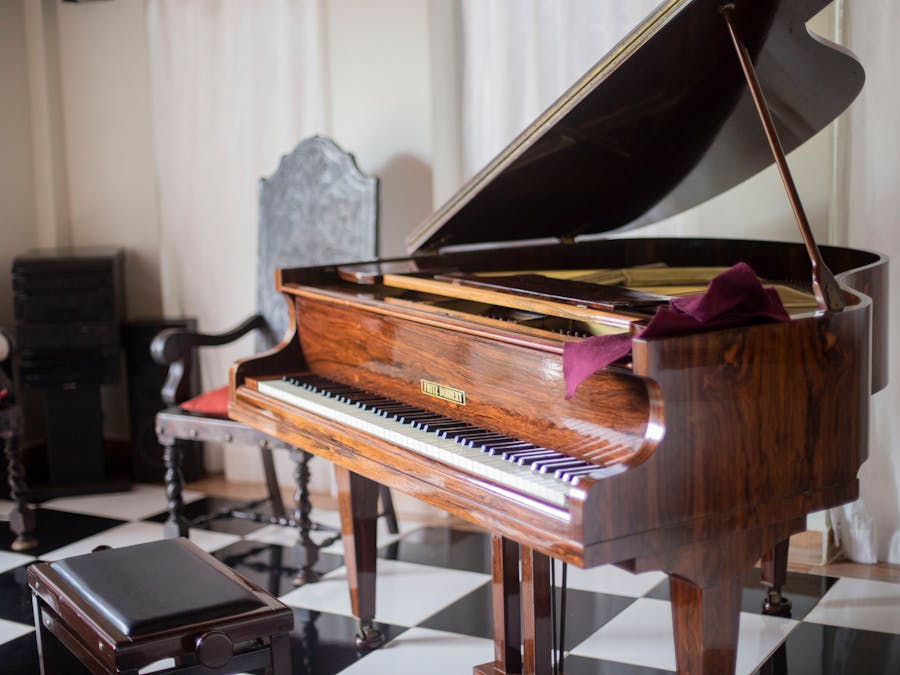 Piano Guidance
Piano Guidance
 Piano Guidance
Piano Guidance

 Photo: cottonbro studio
Photo: cottonbro studio
Tears and chills – or “tingles” – on hearing music are a physiological response which activates the parasympathetic nervous system, as well as the reward-related brain regions of the brain. Studies have shown that around 25% of the population experience this reaction to music.

An upright piano costs between $3000 – $6500 on average. High-end upright pianos average around $10,000 – $25,000. Entry level grand pianos costs...
Read More »
Not everyone has the ability to play by ear. You need to develop your musical ear, which means you need to train your ear to tell the difference...
Read More »Music has the power to tug at the heartstrings, and evoking emotion is the main purpose of music – whether it’s joy or sadness, excitement or meditation. A certain melody or line of a song, a falling phrase, the delayed gratification of a resolved harmony – all these factors make music interesting, exciting, calming, pleasurable and moving. Tears and chills – or “tingles” – on hearing music are a physiological response which activates the parasympathetic nervous system, as well as the reward-related brain regions of the brain. Studies have shown that around 25% of the population experience this reaction to music. But it’s much more than a pure physiological response. Classical music in particular steers a mysterious path through our senses, triggering unexpected and powerful emotional responses, which sometimes result in tears – and not just tears of sadness. Tears flow spontaneously in response to a release of tension, perhaps at the end of a particularly engrossing performance. Certain pieces of music can remind us of past events, experiences and people, triggering memories and associated emotions. At other times, we may feel tearfully awestruck in the face of the greatness or sheer beauty of the music. This last response has a name – Stendhal Syndrome – and while the syndrome is more commonly associated with art, it can be applied equally to the powerful emotional reaction which music provokes. A psychosomatic disorder, Stendhal Syndrome, or hyperkulturemia, causes rapid heartbeat, dizziness, sweating, disorientation, fainting, tears and confusion when someone is looking at artwork (or hearing a piece of music) with which he or she connects emotionally on a profound level. The phenomenon, also called ‘Florence Syndrome’, is named after the French author Marie-Henri Beyle , who wrote under the pen-name of ‘Stendhal’. While visiting the Basilica of Santa Croce in Florence, he became overcome with emotion and noted his reactions: “I was in a sort of ecstasy, from the idea of being in Florence, close to the great men whose tombs I had seen. Absorbed in the contemplation of sublime beauty … I reached the point where one encounters celestial sensations … Everything spoke so vividly to my soul.” While there is some debate as to whether the syndrome actually exists, there is no doubt that music (and art and literature) can have a very profound effect on our emotional responses.

Japanese-made Pianos Today, the two main Japanese manufacturers are Yamaha and Kawai. Yamaha has been making pianos since 1900 and Kawai from 1927....
Read More »
Here's how you do it: Go to a piano or your guitar and find Middle C. We're talking about C4, the C in the middle of the keyboard and the C on the...
Read More »Because music was thought to have a therapeutic effect, the king summoned the hero and warrior David, who was renowned for his skill with the harp.
According to the Book of Samuel, an “evil spirit from the Lord” plagued King Saul, making him agitated and fearful of persecution. Because music was thought to have a therapeutic effect, the king summoned the hero and warrior David, who was renowned for his skill with the harp. In this scene of intense psychological drama, David tries to soothe the troubled king. Lucas van Leyden reveals Saul’s fragile mental state by portraying him sitting stiffly hunched in a chair, tightly clenching a spear in one fist and arching his right foot over his left. David’s pleasing performances would eventually lead to him succeeding Saul as the king of Israel.

One of the reasons the F chord is difficult to play is because it's positioned on the 1st fret of your guitar. A good rule of thumb to remember is...
Read More »
An instrument's level of difficulty to learn is a significant consideration when choosing a musical instrument. The violin is harder to learn than...
Read More »
To date, the most effective mainstream piano / keyboard teaching method has been the traditional piano method, i.e. teaching students to read and...
Read More »
Mariah Carey purchased Marilyn Monroe's grand piano in 1999 It helped her get through difficult times with her abusive family. Dec 20, 2020
Read More »